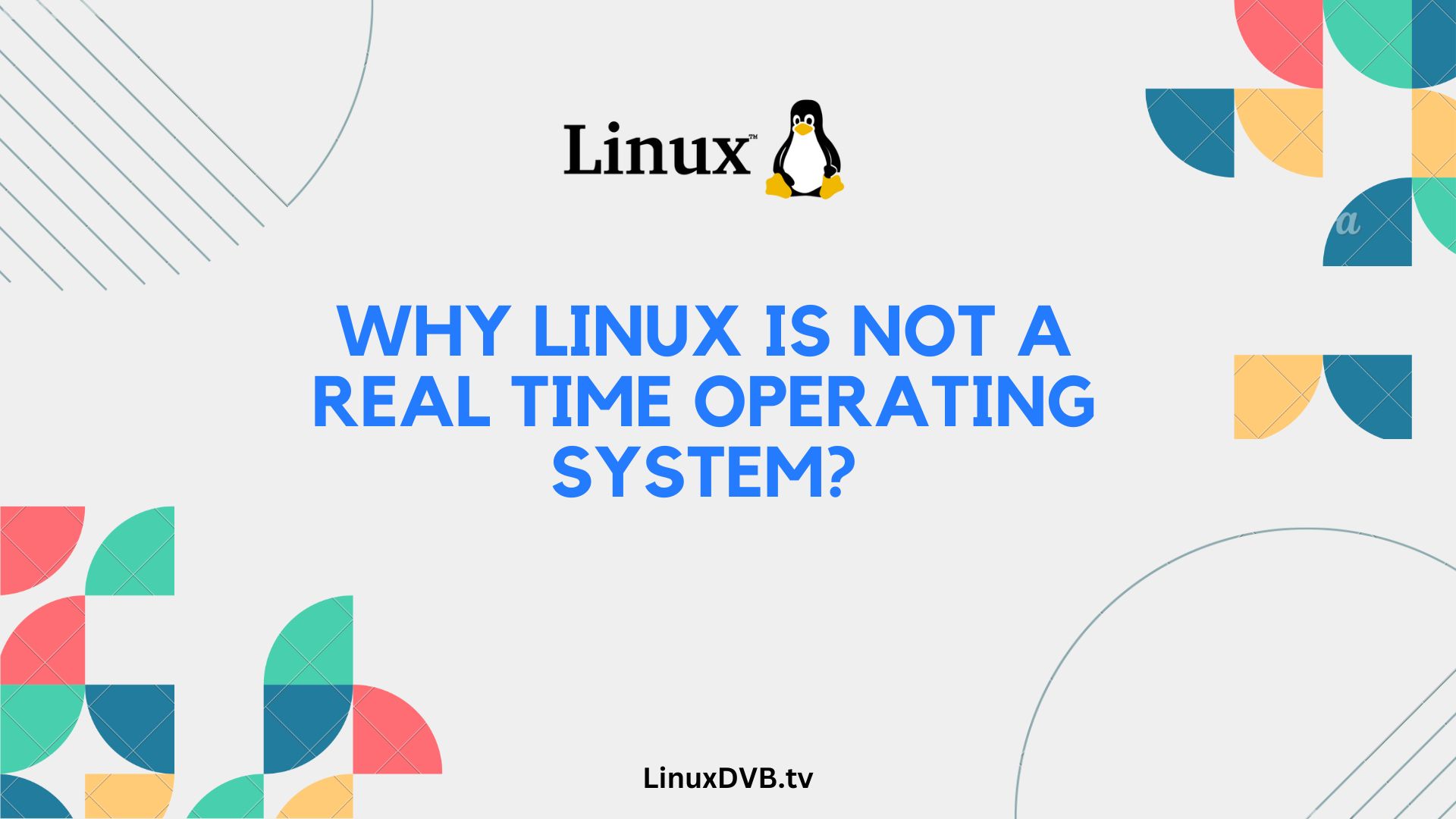Introduction
Linux, with its open-source nature and versatility, has become a household name in the world of operating systems. However, when it comes to real-time applications, it’s important to understand that Linux might not always be the best choice. In this article, we’ll delve deep into the reasons why Linux is not a real-time operating system and explore its limitations. As an expert in the field, I’ll provide you with valuable insights and information to help you grasp the nuances of this topic.
Table of Contents
Why Linux is not a real-time operating system?
In this section, we’ll examine the core reasons why Linux falls short as a real-time operating system.
Lack of Deterministic Behavior
One of the primary reasons why Linux is not ideal for real-time applications is its inherent lack of deterministic behavior. Real-time systems require precise and predictable responses to events, but Linux, being a general-purpose operating system, cannot guarantee this level of consistency.
Non-Real-Time Scheduling
Linux employs a scheduling algorithm that is optimized for general-purpose computing rather than real-time tasks. Real-time operating systems, on the other hand, prioritize tasks based on their time constraints, ensuring that critical tasks are executed without delay.
Unpredictable Interrupt Latency
In real-time systems, interrupt latency—the time it takes for the system to respond to an external event—must be minimal and consistent. Linux, due to its design, often introduces unpredictable interrupt latency, which is unacceptable in critical applications like aerospace or medical devices.
Resource Contentions
Linux’s resource management is not tailored for real-time applications, leading to resource contentions and unpredictable delays in task execution. This limitation can be detrimental in scenarios where timing is crucial.
Lack of Hard Real-Time Support
Hard real-time systems have stringent requirements for task execution deadlines. Linux, while capable of real-time-like performance in some cases, does not provide the guarantees required by hard real-time applications.
Inefficient Kernel Locking
Kernel locking mechanisms in Linux can introduce contention among tasks, causing delays in real-time task execution. Real-time operating systems, conversely, implement efficient locking strategies to minimize such contention.
Common Misconceptions
Let’s debunk some common misconceptions about Linux as a real-time operating system.
Myth 1: Linux Can Achieve Real-Time Performance
While Linux can approach real-time performance in certain scenarios, it cannot match the predictability and consistency offered by dedicated real-time operating systems.
Myth 2: Real-Time Extensions Solve the Problem
There are real-time extensions available for Linux, but they cannot entirely transform it into a real-time operating system. They may improve real-time capabilities but do not eliminate the core limitations.
Myth 3: Linux is Suitable for All Real-Time Applications
Linux may be suitable for soft real-time applications where occasional delays are acceptable, but it’s not suitable for hard real-time tasks with strict timing constraints.
Myth 4: Linux Can Replace Dedicated Real-Time OS
Linux should not be seen as a replacement for dedicated real-time operating systems. It can coexist with them, but each has its specific use cases.
FAQs
Is it ever appropriate to use Linux in real-time applications?
Yes, Linux can be used in real-time applications with less stringent timing requirements, such as industrial automation or data logging.
What are some examples of dedicated real-time operating systems?
Examples include QNX, VxWorks, and RTEMS, which are designed explicitly for real-time tasks.
Are there any efforts to improve Linux’s real-time capabilities?
Yes, various projects aim to enhance Linux’s real-time performance, such as the PREEMPT-RT project.
Can Linux be used in automotive real-time systems?
Linux is gaining popularity in automotive systems but is generally used for infotainment and non-critical functions, not for safety-critical real-time tasks.
How does Linux handle real-time networking tasks?
Linux offers real-time networking capabilities through technologies like the Real-Time Linux (RTL) patchset, but it may still not meet the requirements of the most demanding applications.
What should I consider when choosing an operating system for a real-time project?
Consider your project’s specific timing requirements, the criticality of the tasks, and the available development resources. Consult with experts to make an informed decision.
Why Linux is not a real-time OS?
Linux is not a real-time OS because it does not guarantee precise and deterministic timing for task execution.
Why Linux is not a real-time operating system?
Linux is not a real-time operating system because it prioritizes general-purpose computing tasks over real-time task scheduling and responsiveness.
Conclusion
In conclusion, while Linux is a powerful and versatile operating system, it falls short as a real-time operating system due to its lack of deterministic behavior, non-real-time scheduling, and other limitations. It’s crucial to choose the right tool for the job, and for real-time applications with strict timing constraints, dedicated real-time operating systems remain the preferred choice. Understanding these limitations is essential for making informed decisions when developing real-time systems.

